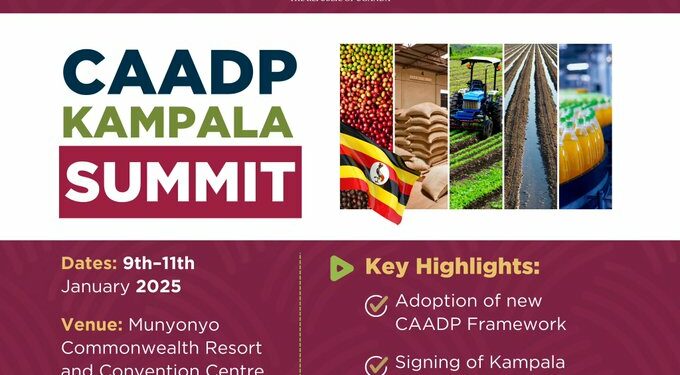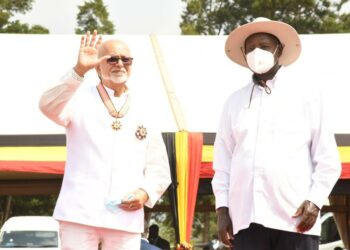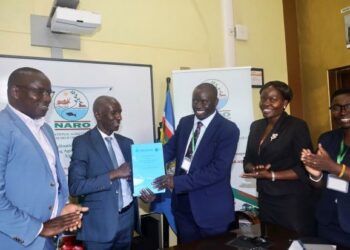The African Union Commission (AUC), in collaboration with the Government of Uganda, is set to host the Extraordinary Summit on the Post-Malabo Comprehensive Africa Agriculture Development Programme (CAADP).
The conference which will unfold from January 9 to 11, 2025, at the Speke Resort Conference Centre in Kampala, is a critical step in charting the future of Africa’s agrifood systems and will bring together Heads of State, Ministers, experts, and key stakeholders from across the continent.
The primary purpose of the extraordinary session is to endorse several vital documents, including the draft Kampala CAADP Declaration and the Ten-Year CAADP Strategy and Action Plan (2026-2035). These documents are pivotal for guiding Africa’s agricultural transformation over the next decade, focusing on inclusive growth, resilience, and sustainability.
Given the long-term scope of the strategy, the summit will also address key risks and uncertainties that could hinder the success of Africa’s agrifood systems transformation.
These include:
Political Instability: The summit will emphasize the need for mechanisms to address political risks that could affect agricultural policies and production systems.
Climate Change and Environmental Shocks: The strategy will incorporate adaptive measures to ensure that agricultural systems remain resilient in the face of climate-related challenges.
Health Crises and Pandemics: Key interventions include strengthening public health surveillance and developing coping mechanisms for health-related shocks.
Gender and Youth Inclusion: A focus will be placed on eliminating barriers for women and youth to fully participate in agricultural activities and decision-making processes.
The Kampala CAADP Declaration will stress the importance of peace-building efforts, promoting household insurance, and ensuring stable food prices to enhance resilience at both the household and community levels.
The CAADP, established in 2003, has been at the forefront of Africa’s agricultural transformation efforts. The program’s initial goals, set out in the Maputo Declaration (2003-2013), focused on increasing food security, improving nutrition, and reducing rural poverty. The Malabo Declaration of 2014 further reinforced these goals, aiming for specific targets by 2025, including eradicating hunger, boosting intra-African trade, and building resilient agricultural systems.
However, during the Thirty-Seventh Ordinary Session of the African Union Assembly in February 2024, African leaders expressed concern that the continent is not on track to meet these targets. This prompted the development of a post-Malabo CAADP agenda, which will be discussed at the upcoming summit in Kampala.
The summit will span three days, with the first day (January 9) dedicated to a meeting of the Ministers responsible for Agriculture, Rural Development, Water, and Environment. On January 10, there will be a Joint Session of Ministers of Agriculture, Rural Development, Water, Environment, and Foreign Affairs, focusing on the presentation of the draft CAADP Ten-Year Strategy and Action Plan and the draft Kampala CAADP Declaration.
The final day, January 11, will see the Assembly of Heads of State and Government convene to endorse both documents. This high-level assembly will include Presidents, Prime Ministers, and other senior officials from AU member states, along with Ministers, experts, and representatives from non-state actors, the media, academia, and development partners.
Addressing Africa’s Development Vision
The summit aligns with the African Union’s broader goals set out in Agenda 2063, which envisions “An Integrated, Prosperous and Peaceful Africa, driven by its own citizens.”
The CAADP agenda plays a vital role in realizing this vision, particularly in the areas of agricultural growth, rural development, and food security, which are key to achieving sustainable socio-economic transformation.
As part of the African Union Development Agency (AUDA-NEPAD), this summit is an opportunity to strengthen collective efforts towards resilient agrifood systems that can respond to the evolving needs of Africa’s growing population and changing environmental conditions.
Do you have a story in your community or an opinion to share with us: Email us at editorial@watchdoguganda.com













